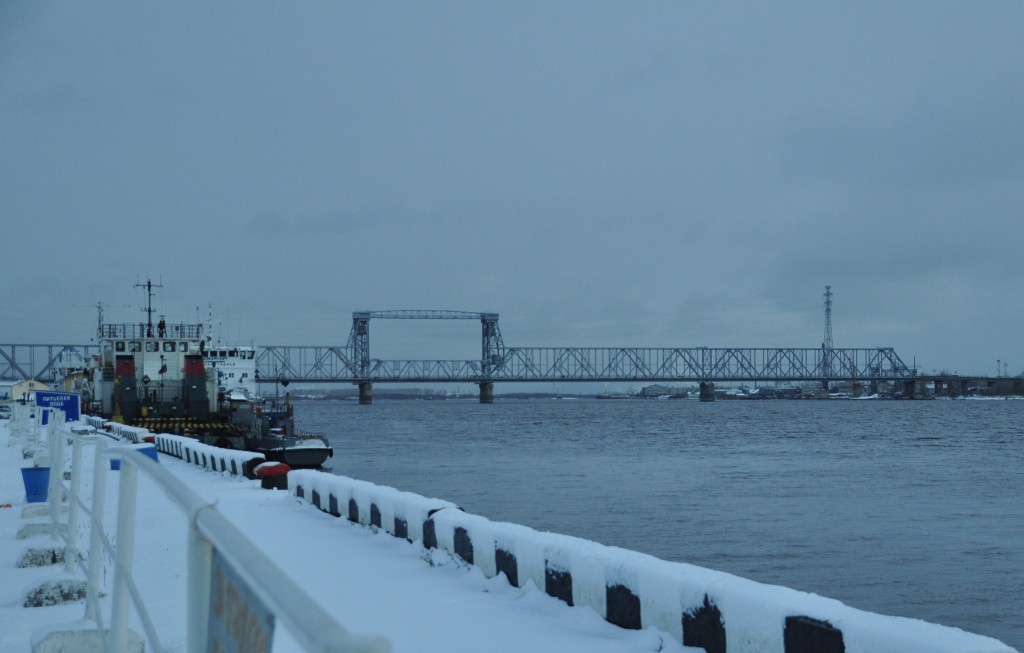Search Results for Tag: winter
Vaccination for everyone, the polar way
 “Have they cleared the landing strip?”, I asked my seat neighbour when our plane was about to land in the North Russian city of Archangelsk last wednesday. My seat was not on the window, all I could see was right in front of the small window: a lot of snowflakes twirling in the air. It is winter already. When we took off in Berlin in the morning, the autumn sun rose. “Yes, they did”, the colleague next to me answers. “There is less snow underneath our plane then aside us.” The plane slows down.
“Have they cleared the landing strip?”, I asked my seat neighbour when our plane was about to land in the North Russian city of Archangelsk last wednesday. My seat was not on the window, all I could see was right in front of the small window: a lot of snowflakes twirling in the air. It is winter already. When we took off in Berlin in the morning, the autumn sun rose. “Yes, they did”, the colleague next to me answers. “There is less snow underneath our plane then aside us.” The plane slows down.
The next morning, all the snow is thawed. A local man says: “It is quite mild for this time. Normally it is snowing already in middle of October.” Is it just freak weather or already climate change? I prefer not to ask that question.
It emerges that people in Archangelsk do not really believe in climate change: It’s not so bad, they say, all natural. That’s the undertone at a discussion panel on the German-Russian Media forum that is running at the moment in Archangelsk.
I am almost relieved, as a researcher from Northern Public Medical University says: “The existence of climate change is beyond all question”. But a second later I wince as she continues: “We are not interested in what is causing climate change. If humans are responsible … who knows.” It would be more important to think of the consequences and to protect the health of the people. The health professional Zhanna Varakina has contributed to a research project of the World Health Organisation (WHO). The project title is truly condensed, in terms of a scientific paper: “Impact of climate change on human health and assesment of possibilites for adaption in the North of Russia.”
Varakina finally found out: Today there are sixty times more cases of tick-borne encephalitis as there were 15 years ago. What this means in absolute numbers, she can’t tell instantly. Tick-borne encephalitis, short TBE, is caused by virus-infection. These viruses get into the human body when one is bitten by a virus-infected tick. “20 years ago those infected tics could not be found here. It was simply too could, so they couldn’t survive here as tics are very sensitive to temperature”, the researcher says. But nowadays it is here, in Archangelsk, northern of 64th latitude, warm enough for them. A look at the online availiable climate-tables reveals for Archangelsk: In winter the montly average temperature ranges from zero to minus 13 degree Celsius – in summer it is 16 degrees on average and maximum temperature is 21,8 degrees. To me, this still seems quite brisky, but if the ticks feel fine with this…
So I ask the researcher: How do you protect the 350.000 inhabitants of Archangelsk – with a TBE vaccination, as is customary in Germany? “That would be too expensive” she answers. The TBE vaccination is said not to be included in the national vaccination schedule, which means everybody would have to pay for it on his own. But actually, the vaccination is not necessary, she adds: “In spring, two weeks before the snow starts thawing, we distribute chemicals against those animals.”
Franziska Badenschier
Cold spell boosts climate sceptics’ output of hot air
With winter temperatures across Europe dipping to long time lows, climate sceptics are on a roll. Just where is global warming? Fritz Vahrenholt is an example. A former top manager at one of Germany’s largest utilities companies, he is reported as feeling “duped on climate change”. Granted – hundreds of people frozen to death, temperatures below minus 20 degrees Celsius and snow on Mediterranean islands don’t intuitively go well together with the idea that the planet is warming.
Yet, scientists at the Potsdam Institute for Climate Impact Research (PIK) near Berlin are saying just that. And that’s not all. Their findings suggest that temperatures have dropped so low precisely because of global warming. What? Well, in simple terms, here’s what’s happening:
Oh, for a funny take on the same story – cold winters, hot doubts – check out this report by Comedy Central’s John Stewart:
Warm Planet, Cold Winter
If you haven't noticed, winter has been especially harsh this year. Much of Northern Europe is in a deep freeze, and any passengers flying through London, Frankfurt or Paris know all too well what this winter has done to travel plans. The U.S. and Canada have been slammed with major snow storms that have left people stranded and desperate during the holiday season. And it's only December…
Some people are wondering: if the planet is getting warmer, why is it so cold? The New York Times has an interesting op-ed article about the reasons behind this trend. The author, Judah Cohen, says increased snow cover in Siberia actually has a major impact on our climate–but he believes scientists have ignored the region's role in warming and cooling earth.
Cohen says snow cover in Siberia has changed jet stream patterns, pushing more air north and south rather than just east and west. That's why Northern Europe and the U.S. have seen such extreme winter weather in recent years. What do you think? Is Cohen's theory a good explanation?






Feedback